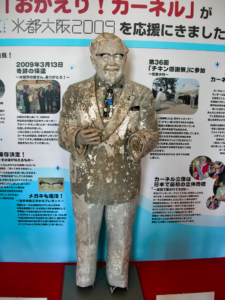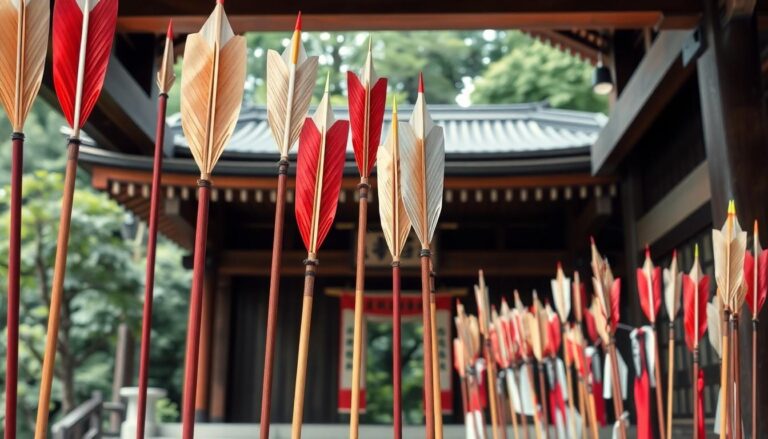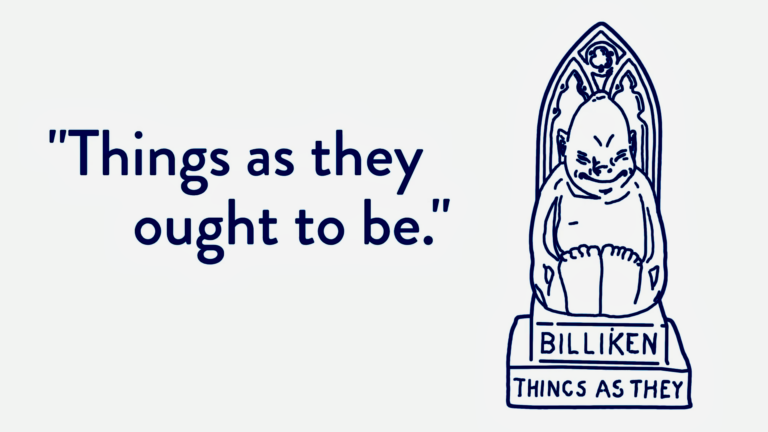Japan and KFC have long had an unusual history. From its Christmas tradition as a replacement for turkey dinners to its reputation as a high quality restaurant chain. Quite the opposite of what we think of in North America when KFC is mentioned (can you feel the grease under your shoes?). But one of its less positive associations is the fact that KFC cursed an entire sports franchise for decades.
If you’re a baseball fan, you may be familiar with the Curse of the Bambino, an 86 year long streak of misfortune that the Boston Red Sox fans had to endure. But baseball-based misfortunes and curses are not unique to the MLB. Japan’s NPB also has a unique history of sports curses. Mainly the Curse of the Colonel which Osaka’s Hanshin Tigers suffered from for an impressive 38 year streak.
Japan’s “Curse of the Colonel” is a curious story that has haunted the Kansai region’s baseball fans for decades. In 1985, the Hanshin Tigers, a professional baseball team based in Nishinomiya, Hyōgo Prefecture, Japan, won the Japan Championship Series, the equivalent of Major League Baseball’s World Series. This broke a 35 year streak of losses for the Tigers.
Celebrations went too far
Following the win, the team’s fans were ecstatic and celebrated far too hard. Drunken revelers took to the Ebisubashi Bridge in Osaka, Japan. As each player’s name was called out, a fan who bore some resemblance to the player would jump headlong into the Dotonbori River.
This worked well until the name of first baseman Randy Bass was shouted out. Randy Bass was an American. He’d spent six seasons in Major League Baseball with five different teams before his contract expired, and he wound up playing professionally in Japan. Unfortunately, no one in the crowd resembled Bass, so they took a statue of Colonel Sanders, founder of Kentucky Fried Chicken from a nearby KFC and tossed it into the river.
Following that year, the Hanshin Tigers embarked on a perpetual losing streak leading fans to believe that the Colonel’s anger cursed the team into losing until the statue was recovered.
Curse unbroken

In 2009 following 2 defeats in the championship finals, divers took it upon themselves to search the Dotonbori river and break the curse.
The recovery of the Colonel Sanders statue in Japan’s Dotonbori River was a huge event, as it marked the end of a 24 year long search for the missing statue. The statue was found by divers during construction work on the canal, and its discovery was met with excitement and hope that the curse on the Hanshin Tigers baseball team would finally be lifted.
However, some fans were skeptical and believed that the curse was still unbroken. The Hanshin Tigers had not won a Japan Series since the statue was thrown into the river in 1985. The recovery of the statue in 2009 did not immediately lead to a championship win for the team, which fueled the suspicions that the curse was still in effect until the Colonel’s missing hand and glasses were recovered.
Curse lifted
In 2023, the Hanshin Tigers officially broke the curse and won the Japan Series, bringing joy and relief to their fans after a 38 year long losing streak since the original incident. The recovery of the statue in 2009 would be seen as a turning point, but it took several more years for the team to overcome the curse and claim the championship. As with anything else in life, it takes the universe a bit of time to catch up to the new you.
But there was never a curse

Although it’s a great story, there’s one issue with it. The timeline of events don’t line up. If you read English language sources, you’ll notice that November 2nd (game 6 victory) is listed as the date when the Hanshin Tigers won the Series Championship and the Colonel Sanders statue was tossed into the river as celebration.
That date however, is wrong. If you dig through Japanese sources, the statue is said to have been thrown in the river on October 16th 1985 (before the finals) right before the Japan Series championship finals began and long before their victory on November 2nd. Would the angry Colonel wait a whole season before cursing a team? Of course not.
So if anything, throwing the colonel into the river might have been what brought them to victory in the first place. Which means if you’re to be extra superstitious, you should be throwing more colonel statues into the Dotonbori river on a monthly basis and see if it improves the team’s fate.
Editor’s note
This is a joke. Please do not throw any statues into the Dotonbori river. We don’t like lawsuits.
Closing thoughts
It’s my firm belief that what we choose to believe often impacts our lives more than what’s actually true. did the curse truly exist or was the Hanshin Tigers’ victory in 1985 but a fluke? If you don’t believe in curses, you would believe that 1985 and 2023 are anomalies in the team’s history.
But in believing that the curse existed, fans and players could keep supporting their team because it was just “a string of bad luck”. Now that it’s gone, they can look to the future with confidence that “the curse is broken” and that they can now win on their own merit. In this case, the story mattered more than the reality. So is it so bad to believe in a broken curse that never existed?
If you’ve been going through a rough patch, I’m here to tell you the curse is broken. The Colonel told me himself! So go live life, it’s in your hands now. This only works if you believe it by the way.
FAQ
What is the story of Curse of the Colonel?
The Curse of the Colonel is an urban legend in Japan surrounding Osaka’s Hanshin Tigers baseball team. In 1985, after the Tigers won their first Japan Series in 21 years, fans celebrated by jumping into the Dotonbori River in Osaka. They substituted star player Randy Bass, by throwing a statue of Colonel Sanders from a nearby KFC into the river as part of the celebrations. This started a 38 year long championship drought drought for the Tigers, and many fans believed the colonel’s spirit cursed the team for their insolence. The statue was recovered in 2009, but it wasn’t considered broken until the Tigers won the Japan Series again in 2023.
What is the curse of the Colonel River?
The river in which the curse of the colonel originates is the Dotonbori river in the middle of downtown Osaka, Japan. That’s where Hanshin Tigers fans originally threw the Colonel Sanders statue and started the curse.
How many Colonel Sanders statues are there in Japan?
Unfortunately, there’s no official figure on how many Colonel Sanders statues exist in Japan. However as there are KFC 1165 locations in Japan, you can reasonably expect that the number is under 1000. And as most locations do not have a statue at the front door, you can expect the real number to be less than 116 (1 out of 10 locations).
Is the Curse of the Colonel still active?
No, the curse of the colonel was lifted in 2009 when the statue was recovered and confirmed broken in 2023 when the Hanshin tigers won the Japan Series Championship according to baseball fans.





Trending now